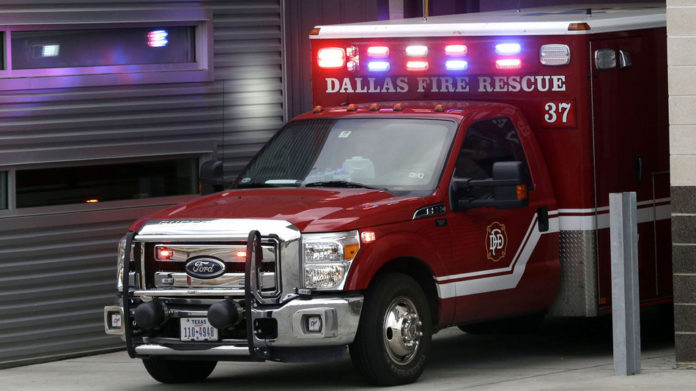80 People Under Watch for Ebola in Texas

DALLAS — Health officials in Texas have reached out to about 80 people who may have had direct or indirect contact with the man infected with Ebola or someone close to him, a Dallas County Health and Human Services spokeswoman said Thursday.
No one is showing symptoms, agency spokeswoman Erikka Neroes said.
The 80 or so people include 12 to 18 who first came in contact with the infected man — which federal health officials have said include three members of the ambulance crew that took him to the hospital, plus a handful of schoolchildren — as well as others known to have secondhand contact, she said.
“This is a big spider web” of people involved, said Neroes, who was unable to specify how those initial 12 to 18 people came in contact with the larger group or provide specifics about the ages of the people.
Health officials have educated the people on the symptoms of Ebola and told them to notify health workers if they feel ill, she said.
“Our monitoring will be to see if any of them have reported” to health officials up to 21 days from the time of contact, Neroes said.
The Texas Department of State Health Services said Thursday it has a list of about 100 potential or possible contacts but that the official “contract tracing number will be lower,” department spokeswoman Carrie Williams said in a statement. The statement did not say specifically when the official number will be released, but that the current figure is due to caution and includes people who had brief encounters with the patient or the patient’s home.
Health officials are focusing on containment to try to stem the possibility of the Ebola virus spreading beyond Thomas Eric Duncan, who traveled from Liberia to Dallas to visit relatives and fell ill on Sept. 24.
A Dallas emergency room sent Duncan home last week, even though he told a nurse that he had been in disease-ravaged West Africa. The decision by Texas Health Presbyterian Hospital to release Duncan could have put others at risk of exposure to Ebola before the man went back to the ER a couple of days later when his condition worsened.
The patient explained to a nurse last Thursday that he was visiting the U.S. from Africa, but that information was not widely shared, said Dr. Mark Lester, who works for the hospital’s parent company.
Hospital epidemiologist Dr. Edward Goodman said the patient had a fever and abdominal pain during his first ER visit, not the riskier symptoms of vomiting and diarrhea. Duncan was diagnosed with a low-risk infection and sent home, Lester said.
Duncan has been kept in isolation at the hospital since Sunday. He was listed in serious but stable condition.
Neighbors in Monrovia, Liberia, believe Duncan become infected when he helped bundle a sick pregnant neighbor into a taxi a few weeks ago and set off with her to find treatment. The 19-year-old woman was convulsing and complaining of stomach pain, and everyone thought her problems were related to her pregnancy, in its seventh month. No ambulance would come for her, and the group that put her in a taxi never did find a hospital. She died, and in the following weeks, all the neighbors who helped have gotten sick or died, neighbors said.
In Texas, neither the ambulance crew nor the children showed any symptoms and were being monitored at home. It was not clear how Duncan knew the children, but his sister said he had been visiting with family, including two nephews.
Duncan left Liberia on Sept. 19, flying from Brussels to Dulles Airport near Washington. He then boarded a flight for Dallas-Fort Worth, according to airlines, and arrived the next day. He started feeling ill four or five days later, Frieden said.

Image: Mashable
Dr. Tom Kenyon, director of the CDC’s Center for Global Health, said Duncan did not show signs of disease before boarding the plane in Monrovia. Since the man had no symptoms on the plane, the CDC stressed there is no risk to his fellow passengers.
The CDC has received 94 inquiries from states about illnesses that initially were suspected to be Ebola, but after taking travel histories and doing some other work, most were ruled out. Of the 13 people who actually underwent testing, only one — Duncan — tested positive.
Four American aid workers who became infected in West Africa have been flown back to the U.S. for treatment after they became sick. Three have recovered.
Have something to add to this story? Share it in the comments.
